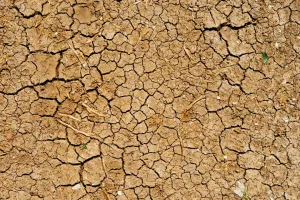Two summer droughts in different parts of the world and their associated consequences are yet another sign of the shift from climate change’s distant inevitability to its immediate urgency. In a recent article in the New York Times, the story of a drought in Utah catalogues the ways in which this blight has severely impacted farming and hindered local economic growth. Thousands of miles away in Iran, another drought has caused severe power outages and had catastrophic effects on agriculture. Protests have sprung up in the Iranian province of Khuzestan, leading to two deaths.
The droughts—just one type among many of the natural disasters that have struck the nations of the world this summer—are an object lesson in what will happen as the global climate crisis worsens. In Utah, economic growth has stalled in the small towns facing the drought as local governments impose restrictions on building new homes. Keeping outsiders from settling, they say, is necessary to preserve the diminishing supplies that they have. California, another affected state, has seen its reservoirs dwindle significantly in recent years. The agricultural industry in the state, which produces a significant portion of the nation’s food, is struggling too.
In Iran, the situation is even worse. The Islamic Republic has experienced frequent blackouts as a result of the failure of the hydroelectricity that it relies on. In addition, like California, the drought has generated serious agricultural problems, a logical but tragic outcome given that the country uses about ninety percent of its water resources for farming. Unlike the United States, however, Iran is much more economically constrained. Western sanctions, particularly the United States’ “maximum pressure” campaign and US President Joe Biden’s reticence to re-enter the Iran nuclear deal, have isolated the country from the world financially. The country’s troubled economic history, both recent and extended, has escalated the severity of the situation.
It goes without saying, of course, that Iran’s history of authoritarian governance has exacerbated its climate crisis independently of the United States’ foreign policy. But the US has its own history of bad governance on the issue of climate which highlights a particular failure of American democratic institutions. Such institutions are supposed to be adaptive to crises like this rather than shamefully impotent, especially given decades of scientific forewarning. Were they working as they should have, American institutions would have generated solutions to a looming problem by limiting corporations’ carbon emissions and capacity to manipulate the public into doubting the science of climate change.
The problem of deficient institutions extends into the international sphere as well. When international institutions exist and are functioning well, they bring powers to the table and shape interactions that would otherwise be perceived as zero-sum (or, in plainer terms, win-lose), into positive-sum interactions, in which all parties may benefit. Iran and the US have been, with the key exception of the Iran nuclear deal, engaged in zero-sum power politics for the past four decades.
The climate crisis, however, cannot be resolved on a zero-sum basis. One nation’s emissions contributions will necessarily affect the climate of all others adversely. Likewise, punitive sanctions will constrain the ability of democracies and non-democracies alike to adapt to the climate crisis. International institutions possessing legitimacy—both among domestic populations and global leadership—and the ability to shape states’ behavior for the better on the matter of climate change, will be absolutely crucial in the years to come.
The United States and Iran no longer have the luxury of ruling out cooperation on all matters of international policy. They do not need to be friends, but, like the two squabbling parties of our democracy, they face shared challenges and must cooperate for the sake of a (global) common good. Unless the nations of the world can look past their differences for the sake of their own survival, they may simply end up fighting over ashes and dust.


Comments
Join the conversation